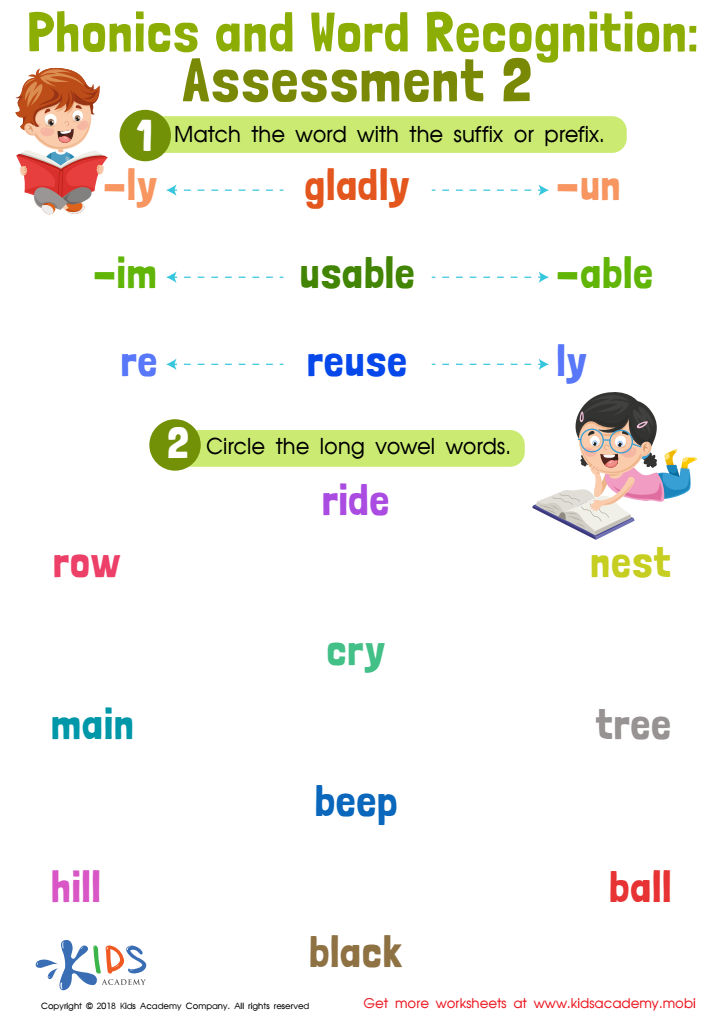Phonics worksheets activities for Ages 7-8
7 filtered results
-
From - To


Let's Check Long Vowels: Assessment Worksheet


Phonics and Word Recognition: Assessment 3 Worksheet


Phonics and Word Recognition: Assessment 1 Worksheet


Long and Short Vowel Sentences: Assessment Worksheet


Phonics and Word Recognition: Assessment 1 Worksheet


Phonics and Word Recognition: Assessment 2 Worksheet


Phonics and Word Recognition: Assessment 2
Phonics worksheets activities are an indispensable tool in the journey of acquiring reading and writing skills, especially for young learners. These activities are carefully designed to blend learning with fun, ensuring that children remain engaged and motivated throughout their educational journey. The utility of phonics worksheets activities lies in their multifaceted approach to teaching the basic building blocks of the English language.
First and foremost, phonics worksheets activities introduce learners to the relationship between letters and sounds, which is the cornerstone of reading. By systematically going through these worksheets, children gradually understand how letters combine to form words, making the daunting task of reading seem more approachable. This foundational knowledge is crucial for developing reading fluency and comprehension as students progress in their academic careers.
Moreover, phonics worksheets activities are designed with repetition in mind. Repetition is a key learning tool that reinforces memory and recall. Through repeated exposure to phonetic rules and patterns, learners can solidify their understanding and quickly recall how to decode words they encounter. This repetitive practice is essential for building confidence and independence in reading.
In addition to reinforcing phonetic concepts, these activities often incorporate a variety of learning styles. Whether a child learns best through visual aids, hands-on practice, or auditory cues, phonics worksheets can be tailored to meet these diverse needs. This adaptability ensures that all learners can benefit from these activities, regardless of their preferred learning modality.
Finally, phonics worksheets activities foster a sense of achievement. Each completed worksheet represents a step forward in a child's literacy journey. This sense of progress is incredibly motivating for young learners, encouraging them to embrace challenges and celebrate their successes.
In conclusion, phonics worksheets activities are a vital resource in the early stages of reading and writing education. They offer a structured, engaging, and effective method for teaching the fundamental principles of phonics, setting the stage for a lifetime of literacy.
 Assign to the classroom
Assign to the classroom




.jpg)







